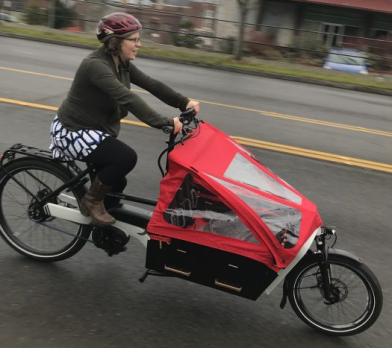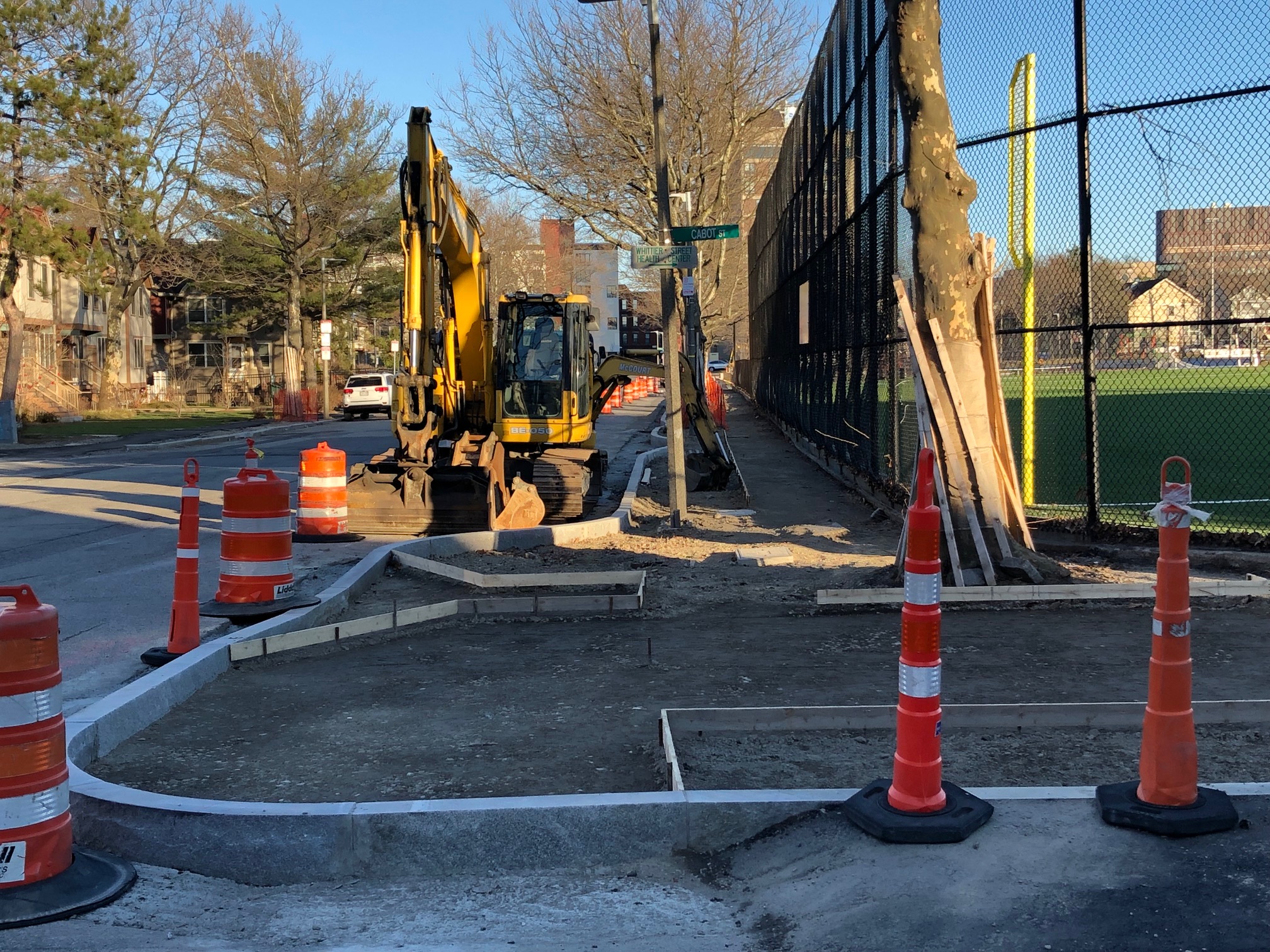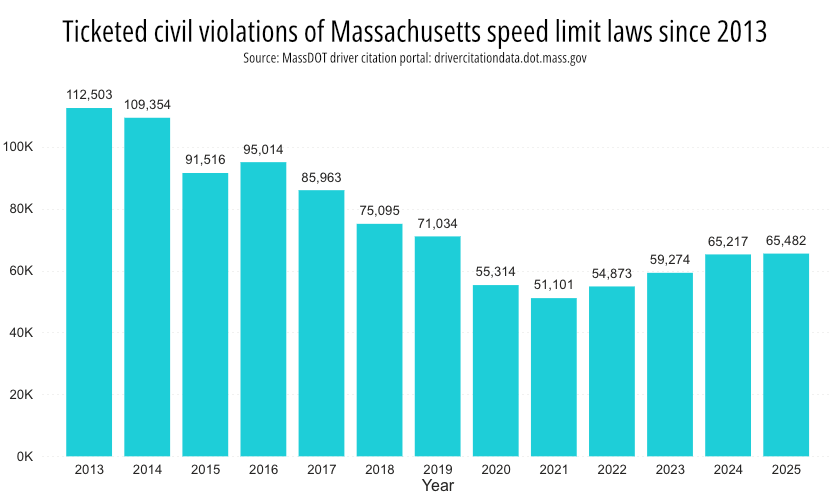
Massachusetts is on course to make it significantly cheaper for you to buy an electric bicycle next year.
Gov. Charlie Baker’s administration started making plans earlier this year to make e-bikes eligible for point-of-sale rebates, but it will be up to the incoming administration under Governor-elect Maura Healey to make those rebates a reality.
The effort gained some momentum with the passage of this year’s transportation bond bill, which authorized additional financing for the program.
Language in that legislation that was sponsored by Rep. Natalie Blais authorizes the Governor to borrow $1 million for a statewide e-bike rebate program, with $500 point-of-sale rebates for e-bike buyers and $750 rebates for low-income customers.
Advocates say there are big implementation questions still at hand going into next year, but the bond bill sends a clear message to the incoming governor.
“This, in my mind, is a value signal to say that the legislature is going to back the administration to expand what they consider to be eligible for EV rebates,” said Galen Mook, executive director of MassBike.
Rep. Blais told MassBike members at the advocacy group’s recent annual meeting that she’ll be working with the administration to define the new program early in 2023.
Major questions hanging in front of the Department of Energy Resources (DOER), tasked with standing up the program, include whether retroactive purchases or retrofit bikes could be eligible. DOER did not respond to a request for comment for this story.
“There will be a formal process … to allow individuals to give their voice to how this program that we’ve defined in legislation should be rolled out,” Blais said.
It’s likely that the program wouldn’t be unveiled until next summer at the earliest, as the funding has to be allocated in the state’s Capital Improvement Plan, a process which typically starts in March and wraps up in late spring or early summer.
Excitement, and some confusion
That makes awkward timing for some prospective e-bike buyers who have been eyeing a purchase but are faced with uncertainty about the rebates.
Boston University professor Nathan Phillips said he’s been looking at buying a second e-bike for his household, likely an electric cargo or work bicycle to help stand up an e-bike powered yard care and gardening service he and others are developing.
“I saw the word point of sale, and the amounts that were listed, and I was like. great, can I go tomorrow?” Phillips said. “It was not ever clear to me when the point of sale rebate kicks in. So I’m still kind of waiting.”
He said that owning one e-bike has already proved the value of the technology for his household: he calls it a “great equalizer” that lets his family take group rides together.
“We know the value,” Phillips said. “If this weren’t coming up, I would still buy an e-bike. But this is going to make me way more likely to get a quality, durable e-bike, as opposed to the entry-level.”
Newton resident Ben Bayes said he’s been looking at buying an e-bike to be able to ride roughly 18 miles to his workplace in Marlborough (the completion of the Mass. Central Rail Trail would be the other big enabler for the commute, he said).
“I think I would buy an e-bike even if I didn’t have the rebate. But I’m certainly thinking about it more because of the rebate,” Bayes said. “I’m worried about climate change and how I can reduce my current impact. And it would save me money rather than driving.”
Localized programs show enthusiasm
A set of Massachusetts Clean Energy Center pilot programs launched earlier this year, which advocates have seen as a precursor to a broader statewide rebate, have shown early success for the concept.
MassBike gave out 89 e-bikes to low-income people in Worcester. From August to October, program organizers say that those bikes were used in 3,367 trips to cover 13,465 miles.
"Back in August, our participants rode heavily for recreational purposes and these helped them get more comfortable riding their e-bikes," said Alex Salcedo, MassBike's Worcester E-Bike Grant Manager, at the annual meeting. "As months go by, our riders are shifting their usage to other categories to use our e-bikes for shopping more frequently."
On Cape Cod, Cape Light Compact has given out over 200 vouchers to low-income residents to cover 75 percent of the cost of an e-bike, up to $1,200. About 100 people have purchased bikes so far.
“I think customers have been really excited about the program,” Mariel Marchand, who manages the program for Cape Light Compact, told Streetsblog. “We really did very limited marketing … and there’s really been a lot of interest.”
The CLC program has also been collecting data about the uses, and Marchand said there have been a variety.
“There are people using their bikes for leisure, but we do also see people using them to run errands, and then definitely some commuting,” she said.
Advocates are excited about the possibility of a statewide rebate, but say there’s also room to dream bigger.
“The kicker is that a million bucks is not a lot. It’s 2,000 bikes,” said Mook of MassBikes.
There’s also an urgency to expanding e-bike usage now, Mook said, which should encourage the Healey administration to hustle on implementation and to make the program retroactive.
“E-bikes are a way to provide a pressure valve for some of the failures of the T,” Mook said. “And I think it’s important to say that people can’t wait.”
As the pandemic continues to ebb, commuters are heading back to the office and people have more of a need to get around town. Advocates want to make sure e-bikes get utilized as a primary mode of transportation, and that habits start changing now.
“If we’re looking at cultural shift to move the needle, they need to do more work to figure out how this will be implemented, how it will be rolled out, how those who need it the most get the first pitch at it,” Mook said.






